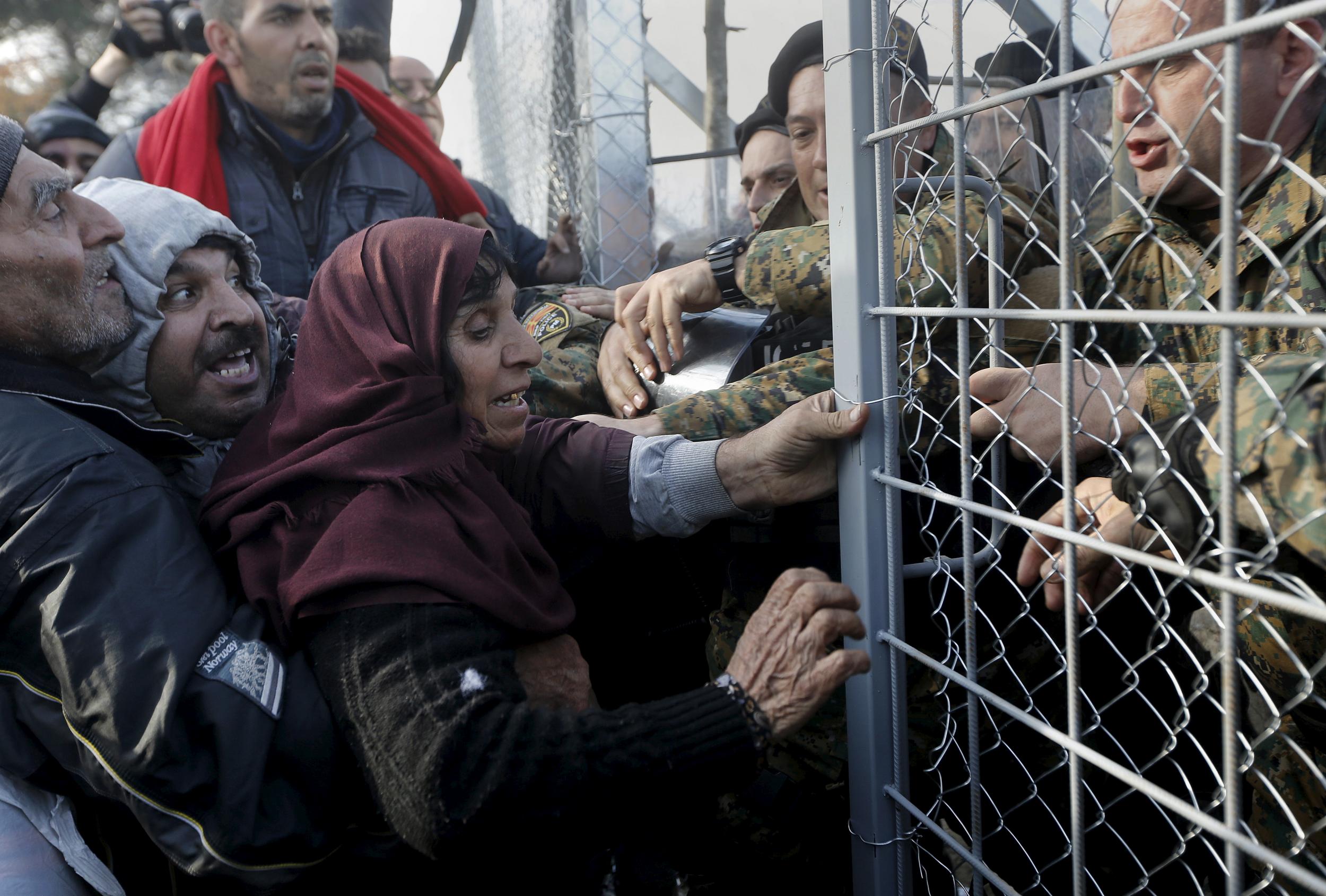UN refugee chief attacks Donald Trump: People who reject Syria Muslims are 'best allies' of Isis
'We must not forget that - despite the rhetoric we are hearing these days - refugees are the first victims of such terror, not its source,' says Antonio Guterres

The head of the United Nations’ refugee agency has issued a thinly veiled attack on Donald Trump by branding those who reject Muslims fleeing war-torn countries as the "best allies" of extremist groups like Isis.
Addressing the crisis surrounding the 4.3 million Syrians who have fled the country’s five-year civil war, UNHCR chief Antonio Guterres’ comments come after the Republican said he would impose a blanket ban on Muslims entering the United States if he were elected president.
"Those that reject Syrian refugees, and especially if they are Muslim, are the best allies of the propaganda and the recruitment of extremist groups," Mr Guterres said.
Isis has captured huge swathes of Syria and neighbouring Iraq. The group claimed responsibility for the co-ordinated terror attacks on Paris on 13 November and said the married couple who carried out a mass shooting in San Bernadino, Southern California, on 2 December were its followers.

Those killings prompted warnings from politicians that the US and Europe could be at an increased risk of terrorism if refugees are not vetted to root out potential extremists.
But Trump was condemned across the political spectrum both at home and abroad when he told a rally in Iowa that he would ban Muslims from entering the country "until our country's representatives can figure out what is going on".
And while he did not mention the outspoken Republican by name, Mr Guterres said: "We must not forget that - despite the rhetoric we are hearing these days - refugees are the first victims of such terror, not its source.
"They cannot be blamed for a threat which they're risking their lives to escape.
"Yes, of course there is a possibility that terrorists could try to infiltrate refugee movements.
“But this possibility exists for all communities - and homegrown radicalisation is by far the biggest threat, as all recent incidents have shown.”
He added that a UN survey of 1,200 Syrians who had fled to Europe found 86 per cent of them had a secondary school education and almost half had gone to university.
During a televised debate last Saturday, would-be Democrat presidential candidate Hillary Clinton claimed Isis was "going to people showing videos of Donald Trump insulting Islam and Muslims in order to recruit more radical jihadists".
Site Intelligence Group, a social media monitoring organisation, said radical jihadists were sharing his comments on social media as an example of "Western oppression against Muslims".
Following the Paris terror attacks, four US states said they would close their doors to Syrian refugees and the House of Representatives voted overwhelmingly to suspend President Obama's refugee program that would admit 10,000 people fleeing the country.
Trump’s fellow Republican presidential candidate Ben Carson said admitting Syrian refugees would be putting Americans at risk and likened them to "a rabid dog running around your neighbourhood".
At least one of the Paris attackers had entered Europe through the Balkans posing as a Syrian refugee, but Mr Guterres said the fake Syrian passport found near the body of one of the Stade de France suicide bombers was a deliberate tactic on the part of Isis to "put refugees in the spotlight" and pitch European countries against them.
He had previously insisted military action and border closures could not eradicate the terrorism risk.
"An essential part of this is to convince the potential recruits of terrorist organisations that that is not the way to express their own anger or their own concerns or their own perspectives,” he said.
Join our commenting forum
Join thought-provoking conversations, follow other Independent readers and see their replies
Comments